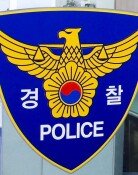[Editorial] Don't exploit election funds for partisan purposes
[Editorial] Don't exploit election funds for partisan purposes
Posted January. 05, 2001 19:48,
As a result of the prosecution's investigations, it was disclosed that the Agency for National Security Planning (NSP), predecessor of the National Intelligence Service (NIS), contributed a massive amount of state funds to the then ruling New Korea Party ahead of the general elections on Apr. 11, 1996. The total amount of the contributed money has yet to be confirmed, but initial probe results revealed that the NIS diverted more than 100 billion won of the agency's budget to the NKP election campaign.
That the state intelligence organization misused taxpayers' money by contributing to a specific political party is a crime that undermines the national foundation. It is natural in this regard that the prosecution launched a thorough investigation of the suspects, regardless of their position in society. Although some opposition politicians were implicated in the politically sensitive case, the prosecution vowed to conduct a fair but stringent probe.
Kim Joong-Kwon, chairman of the ruling Millennium Democratic Party (MDP), has raised suspicions that main opposition Grand National Party (GNP) president Lee Hoi-Chang, then chief election campaign manager of the then ruling New Korea Party, was involved in the scandal. But his allegation is more than inappropriate for the representative of the ruling party and a former judge. Kim reportedly told news reporters that he heard from a source outside the prosecution that a list of the politicians who received the money from the NSP had been uncovered, adding that GNP leader Lee may have been aware of the inflow of money into his party.
If Kim did not receive the information from the prosecution, where could he have obtained it? Why did he suddenly make such contentious statements at this time? It is suspected that he might have intended to apply pressure on the opposition party by alluding to the expansion of the prosecution's scrutiny in the GNP leadership. His motives are thus under question.
More serious is the fact that his remarks could lead to deepening public distrust of the prosecution. The MDP chairman said that he didn't acquire the information from the prosecution, but the story does not end there. His statement suggests that the prosecution is making timely reports to some higher authorities and that he receives such information from the latter.
Judging from Kim's remarks, the prosecution appears to be collaborating or coordinating with the ruling camp on matters related to the scope of its probe and other details of its investigation. It is a pity to see that the ruling party leader has fallen into a trap he set himself.
On the other hand, it is not right for the GNP to denounce the prosecution's investigation as a scheme to suppress the opposition party. And it is not proper for the party to demand the discontinuation of the prosecution's probe, despite the fact that some concrete evidence incriminating the suspects was found by investigators in the course of tracking the bank accounts of the suspects. The opposition move is contradictory to its own steadfast insistence on the prosecution's political neutrality.
The prosecution should not be swayed by pressure from political circles. In order to get to the bottom of the matter, law-enforcement authorities must shed light on the facts. It is our view that former president Kim Young-Sam must be probed in this connection, if it is deemed necessary.







